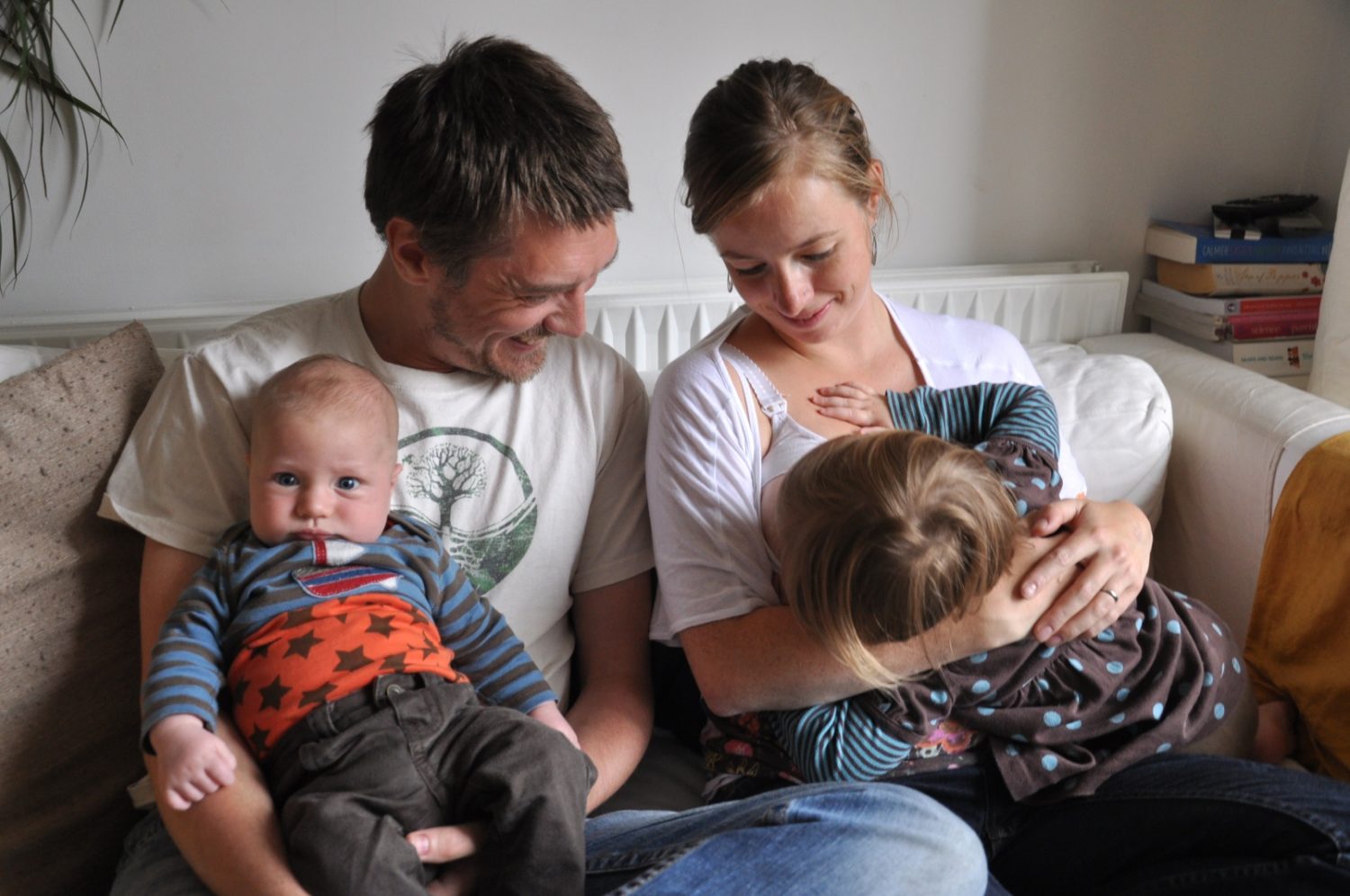
Guest blog: The emotional experience of breastfeeding
Today’s blog is from Lactation Consultants of Great Britain’s Zoe Faulkner, discussing the huge variety of experiences and emotions that mothers go through during breastfeeding, and the need for societal support to help them breastfeed for as long as they wish.
During World Breastfeeding Week we’re sharing a guest blog each day to highlight some of the key issues around the promotion, protection and support of breastfeeding. Add your voice to Unicef UK’s Change the Conversation campaign, calling on UK governments to take urgent action to protect, promote and support breastfeeding.
When we are expecting a baby, it is very natural for our thoughts to be consumed with the pregnancy, the birth, the anticipation of meeting this tiny person and how we may change as a person and as a family.
It’s possible and indeed likely that we will have been given some level of breastfeeding information in pregnancy, and whilst this is often extremely useful, it can also be so hard to think that far ahead, especially first time around.
It’s very common to expect that breastfeeding ‘just happens’, especially if you have come from a family and community where breastfeeding is how babies are fed and nurtured. The hormones of birth, especially when left uninterrupted by medication or other interventions, help prepare both the mum and baby for breastfeeding, and plenty of skin-to-skin contact with the baby has the same effect. In these circumstances the mum can be flooded with the ‘hormone of love’, oxytocin, and feel joyful, with the blissful exhilaration and overwhelming love for her new baby, as they lie skin-to-skin, feeding frequently. Partners too have an oxytocin quota and can feel deeply protective of their partner and the new baby. Mums are often overawed by the abilities of their bodies and their baby and take to breastfeeding like ducks to water.
But it’s not like this for all families. Before the baby is born some women are not sure whether they want to breastfeed or doubt their ability to be able to do it with ease. The birth may leave us physically uncomfortable and sometimes emotionally in shock, both of which can impact on our ability to always respond to our baby’s needs. If you’ve had friends and family who have worried about their milk supply or found breastfeeding painful, it’s only natural to have further doubts about how things may go. As new mums we are all vulnerable to what we hear, see and read and this impacts on our confidence and trust in our bodies.
The truth is, the vast majority of women and babies can essentially breastfeed. Problems may arise because the baby may not be ready to feed (due to prematurity, birth, medication, illness or a physical impairment) and in other cases, it may be due to maternal issues. Sometimes it’s a combination of both. In any of these cases, we may need a lot of effective help, but with time, patience and skill, most problems do have solutions.
Sometimes breastfeeding doesn’t work out as a mum had initially hoped. Where babies aren’t removing the milk well and the breasts aren’t getting adequate stimulation, the milk simply diminishes and ever-increasing formula top-ups are used. The mum’s confidence is further undermined by the baby’s behaviour, who may seem more satisfied with the formula. What is often forgotten is that babies have a reflex to suck, and many babies will always take a bottle after a breastfeed, even if they are not hungry, which is very discouraging. Women in this situation can feel as if they have failed in some way; rather, they should be praised for how they are loving and caring for their babies.
“How long are you going to carry on?”
Mums who are breastfeeding at six weeks often feel that it is around this time that breastfeeding falls into place, if it hasn’t already (although for some mums it does take a little longer). The turning point is often feeling confident having a feed away from home and getting back having survived. At this stage breastfeeding often becomes truly enjoyable and mums greatly appreciate the calm restful moments and warm cuddles.
Having worked hard to get feeding established, mums are then often asked ‘how long are you going to carry on?’ This is extremely personal and may be a matter of weeks, months or years down the line. The UK recommendations are to breastfeed exclusively (meaning no other food or other milks) until around 6 months and then to continue breastfeeding alongside complementary foods. There is no upper limit to how long a mother and baby should breastfeed for. The World Health Organisation (WHO) recommends breastfeeding for ‘two years and beyond’.
How we feel individually about breastfeeding ending varies as much as how we feel about getting breastfeeding started in the first place. Weaning off the breast can be a joyful mark of your baby’s next stage, but it can also be common to feel a sense of loss and miss the closeness you felt. Whenever mum and baby choose to stop breastfeeding, it can be a decision that they make together, marking a new phase in their loving relationship.
Find out more about the work that Lactation Consultants of Great Britain do to support mums to breastfeed.


